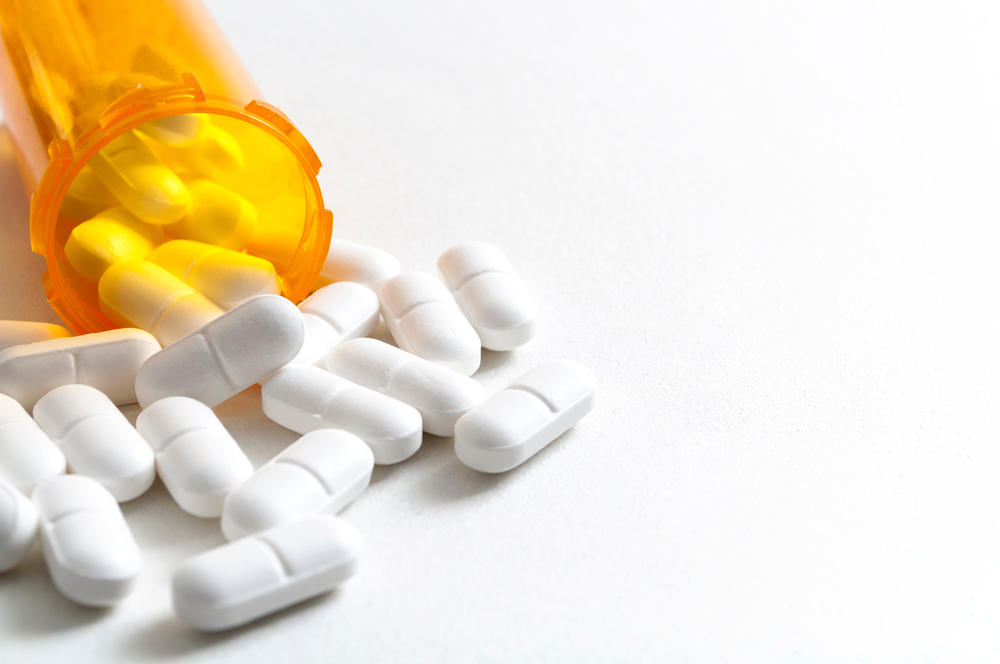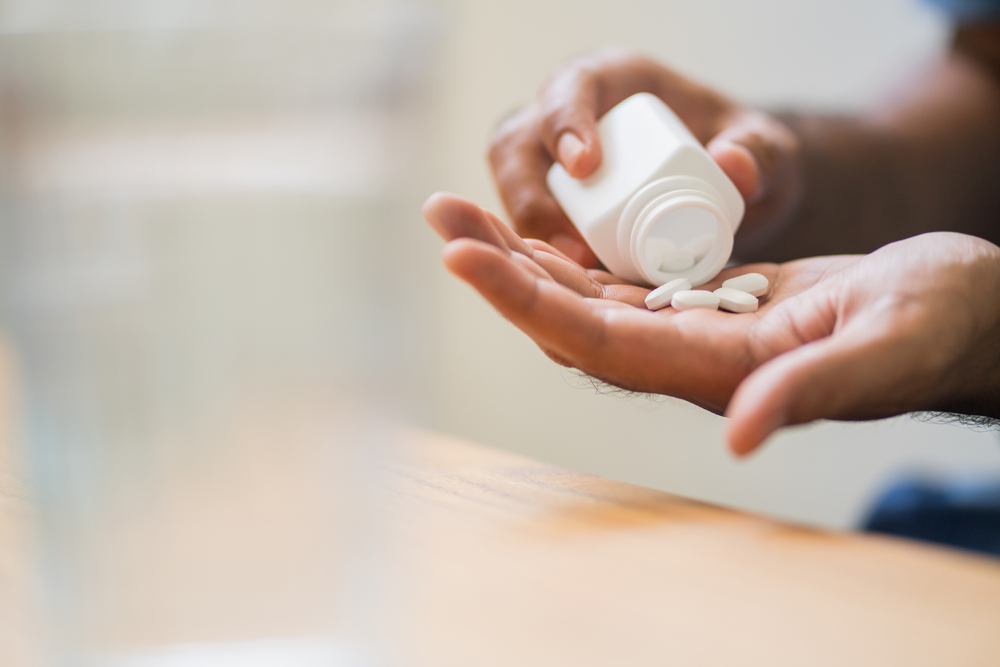Last Updated:
July 21st, 2025
Vicodin Addiction | Symptoms, Effects and Causes
Vicodin is often a last resort for those in severe pain, offering relief where other medications fall short. However, Vicodin carries significant risks, with Vicodin addiction such a big issue that the UK banned the drug in 2012. Despite this, Vicodin can still be found on British streets, and its addictive nature of Vicodin demands extreme caution. If you or someone you know is battling Vicodin addiction, this page will provide insights into Vicodin addiction signs and symptoms as well as the huge dangers it can cause.

What is Vicodin?
Vicodin is the main brand name for a potent pain relief medication that combines hydrocodone, a strong opioid, with paracetamol (known as acetaminophen in many countries). It is primarily prescribed for severe pain conditions like those associated with cancer treatments or post-surgical recovery.
The efficacy of Vicodin lies in its dual-action formula, where the paracetamol allows the hydrocodone to more effectively bind to the brain’s opioid receptors. This action significantly reduces the sensation of even severe pain.
However, when you take Vicodin, it creates a warm, contended high, which can quickly become a habit and lead to addiction. Other Vicodin side effects can also be nasty and can include:
- Nausea
- Vomiting
- Dizziness
- Constipation
- Chronic tiredness
For these reasons, the main component in Vicodin, hydrocodone, is a Class A drug in the UK, while Vicodin itself is not even available on prescription.
What is Vicodin addiction?
Vicodin addiction is when someone finds themselves unable to stop taking the medicine, even though it’s doing more harm than good. In countries where it is available on prescription, it can start innocently with a doctor prescribing Vicodin for serious pain. In the UK, on the other hand, addiction often begins with recreational Vicodin abuse or sometimes self-medication.
Whatever you are using Vicodin for, it usually does the trick at first. But after a while, you might notice you’re reaching for the bottle more often because you now need extra pills to get high or to relieve pain.
Once you start ramping up the Vicodin dose, you may then start feeling really uneasy or sick when you stop. This is Vicodin withdrawal, and it is a clear sign that you have become physically reliant on Vicodin.
After a while, you can then find that you can’t face the day without the comfort Vicodin provides. This is when addiction really grips you, making it feel like living without Vicodin isn’t just difficult but is completely unthinkable.
The warning signs of Vicodin addiction
Vicodin addiction may not wave big red flags at first, but there are some telltale signs that can help you realise when you have crossed into dangerous territory. Keep an eye out for these common Vicodin addiction symptoms:
- Regularly taking more Vicodin than the doctor prescribed.
- Seeking prescriptions from several doctors to ensure a continuous Vicodin supply.
- Resorting to purchasing Vicodin illegally (especially relevant in the UK where it is a banned substance.)
- Withdrawing from friends and family who express concern.
- Frequently feeling tired, confused or unable to concentrate.
- Overspending on Vicodin, even when it strains your finances.
- Experiencing withdrawal symptoms like anxiety or physical discomfort when unable to take Vicodin.
- Persisting in using Vicodin despite experiencing significant negative consequences.
If you recognise these symptoms, then let them be the spark you need to seek professional help for Vicodin addiction.
What causes Vicodin addiction?
As explained above, Vicodin’s chemical effects make it highly prone to abuse and physical dependence. However, every story of Vicodin addiction is deeply personal, influenced by a unique mix of factors that heightened the risk.
Research has repeatedly shown that genetics play a critical role in how susceptible you are to Vicodin addiction. This is why addiction is often seen to be “passed down” from parents to children.
Mental health is another huge part of why people might get hooked on Vicodin. If you are feeling anxious or sad, you might take Vicodin to try to feel better but this can lead to relying on it completely and becoming addicted.
Being able to access Vicodin easily can also affect addiction rates. In the UK, for example, where Vicodin is banned, the numbers of people addicted to Vicodin are generally lower than those involving other opioids.
Your personality can play a surprisingly big role, too. If you are the kind of person who likes taking risks or if you do things without thinking about the consequences, you might be more likely to try Vicodin just to see what it’s like. Likewise, if you have always been surrounded by people using drugs, it might seem okay to use Vicodin recreationally.
Both of these things can make it easier to fall into the trap of Vicodin addiction.
What are the mental and physical dangers of Vicodin addiction?
Vicodin addiction can spread into every part of your life, bringing some serious health and personal risks that can be deadly and devastating:
- Vicodin overdose: The more Vicodin you take, the higher your risk of taking too much, especially as your body starts demanding more to feel the same effects. A Vicodin overdose can make your breathing dangerously slow, can knock you out into a coma and can even be deadly if you don’t get help fast.
- Physical damage: Continuous Vicodin use can wreak havoc on your body. It is tough on your liver, potentially causing severe damage, and it can permanently damage your kidneys. Respiratory problems can also become more common, overall pulling your physical health down a dangerous path.
- Mental damage: While Vicodin might seem like it’s easing your worries or pain temporarily, it tends to make things like anxiety and depression worse over time. This can trap you in a vicious cycle where you feel driven to increase your dose to handle these worsening symptoms, which fuels mental health issues even more.

How to overcome Vicodin addiction
Vicodin addiction recovery starts with a medically supervised detox. Under the watchful eyes of healthcare professionals, you will begin to cut down on Vicodin slowly but steadily. This isn’t just about reducing Vicodin out of your system; it is also about cushioning the discomfort that comes with withdrawal. You might feel a mix of intense cravings or even aches and pains, but medications like methadone can help a lot.
After Vicodin detox, attention then shifts to tackling the psychological aspects that often drive dependency. Vicodin rehab programmes, accessible through both the NHS and private sectors across the UK, provide comprehensive support in this regard.
Opting for an inpatient rehab programme is particularly beneficial so you can immerse you in a healing environment, away from daily triggers and stressors. The best rehabs offer a variety of therapeutic activities and counselling sessions as well as ongoing support after treatment.
How to get help for Vicodin addiction
If you or someone you love is caught in the grip of Vidon addiction, there is help out there that can make all the difference. Vicodin addiction is serious, but recovery is possible with the right care and guidance. Get in touch with us today and start your journey towards healing.
Our compassionate team are ready and available to take your call, and guide you towards lasting the lasting addiction recovery you deserve.
Frequently Asked Questions
(Click here to see works cited)
- Caldwell, Wendy K et al. “The Vicodin abuse problem: A mathematical approach.” Journal of theoretical biology vol. 483 (2019): 110003. doi:10.1016/j.jtbi.2019.110003. Accessed 15 January 2025.
- Cassidy, Theresa A et al. “Patterns of abuse and routes of administration for immediate-release hydrocodone combination products.” Pharmacoepidemiology and drug safety vol. 26,9 (2017): 1071-1082. doi:10.1002/pds.4249. Accessed 15 January 2025.
- UK Addiction Treatment Centres. “Vicodin addiction | Vicodin abuse signs and symptoms | UKAT.” UK Addiction Treatment Centres, 8 August 2023, https://www.ukat.co.uk/addiction/drug/prescription/opiate/vicodin/. Accessed 15 January 2025.
- UK Rehab. “Vicodin Addiction | Causes, Symptoms and Diagnosis.” UK Rehab, https://www.uk-rehab.com/prescription-drug-addiction/opioid/vicodin/. Accessed 15 January 2025.
- WebMD. “Vicodin Oral: Uses, Side Effects, Interactions, Pictures, Warnings & Dosing.” WebMD, https://www.webmd.com/drugs/2/drug-3459/vicodin-oral/details. Accessed 15 January 2025.

